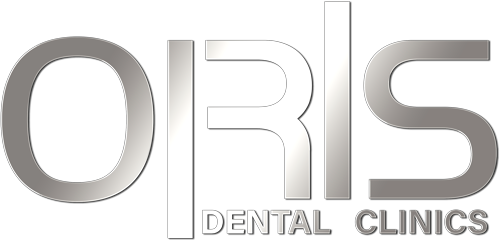"Smile Securely, Bond Beautifully: Your Radiant Smile, Our Dental Bonding Expertise!"
Dental bonding is a popular cosmetic dentistry procedure that can treat various dental problems, including chipped or discoloured teeth. If you’ve recently undergone dental bonding at ORIS Dental Clinics in Richmond Hill, Ontario, congratulations on taking a step toward enhancing your smile! However, it is critical to be attentive to post-treatment care, particularly regarding your diet.
In this blog post, we’ll look at ORIS Dental Clinics‘ guidelines and recommendations to help you understand what you can and cannot eat following dental bonding.
Understanding Dental Bonding
Dental bonding is the process of applying a tooth-coloured resin material to the surface of your teeth. Moreover, the resin is meticulously shaped and moulded to enhance the appearance of your teeth, resulting in a natural-looking result.
While dental bonding is a long-lasting and efficient treatment, it must be properly maintained to preserve its lifespan and excellent oral health.
Dental Bonding: Post-Treatment Dietary Considerations
Avoid Hard and Sticky Foods
- Hard foods, including nuts and candies, have the potential to damage bonded teeth or cause the bonding material to chip.
- Sticky foods like caramel and chewing gum might adhere to the bonding material, causing premature wear and tear.
Choose Soft and Non-Abrasive Foods
- In the days following dental bonding, choose soft and non-abrasive foods to reduce unnecessary stress on the bonded teeth.
- Mashed potatoes, yogurt, smoothies, and steamed vegetables are a few examples.
Be Mindful of the Temperature
- Extreme temperatures can harm the bonding material. While you don’t have to avoid hot or cold foods entirely, be cautious of their temperature, especially in the first few days after the treatment.

Maintain Good Oral Hygiene
- Maintain your regular oral hygiene practice, which includes brushing and flossing. To avoid abrasive action on the bonded teeth, use a soft-bristle toothbrush.
Limit Consumption of Staining Substances
- Limit your intake of foods and beverages known to stain teeth, such as coffee, red wine, and berries. This helps to maintain the aesthetic appeal of your bonded teeth.
Attend Follow-Up Appointments
- Keep your scheduled follow-up appointments at ORIS Dental Clinics. Regular checkups enable dental professionals to assess the condition of the bonded teeth. They also enable addressing any issues as soon as possible.
Emphasizing Long-Term Oral Health
Beyond the immediate post-treatment period, taking a comprehensive approach to your oral health is critical. As recommended by the professionals at ORIS Dental Clinics, schedule regular dental checkups and cleanings. Moreover, these regular checkups help monitor the condition of your bonded teeth and allow for early detection of any potential problems.
Furthermore, good dental habits, such as avoiding sugary snacks and staying hydrated, contribute to the overall health of your teeth and gums. By embracing a comprehensive approach to oral care, you safeguard the results of your dental bonding. You can also promote long-term oral health and a radiant smile.
Final Thoughts
To summarize, while dental bonding is an effective way to improve your smile, it is critical to follow post-treatment guidelines to ensure its success. ORIS Dental Clinics in Richmond Hill, Ontario, values patient education and care and provides these guidelines to assist you in making informed diet choices after dental bonding.
Furthermore, by being mindful of what you eat and practicing excellent oral hygiene, you can enjoy the benefits of a beautiful and healthy smile for many years.
If you have specific concerns or questions, please get in touch with the skilled dental professionals at ORIS Dental Clinics for personalized guidance. Call us today!




